Fleurs du Mal Magazine


Or see the index
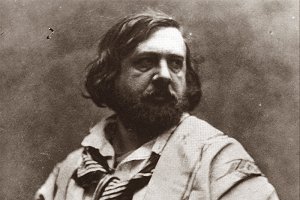
Théophile Gautier
(1811-1872)
Bûchers et tombeaux
Le squelette était invisible,
Au temps heureux de l’Art païen ;
L’homme, sous la forme sensible,
Content du beau, ne cherchait rien.
Pas de cadavre sous la tombe,
Spectre hideux de l’être cher,
Comme d’un vêtement qui tombe
Se déshabillant de sa chair,
Et, quand la pierre se lézarde,
Parmi les épouvantements,
Montrait à l’oeil qui s’y hasarde
Une armature d’ossements ;
Mais au feu du bûcher ravie
Une pincée entre les doigts,
Résidu léger de la vie,
Qu’enserrait l’urne aux flancs étroits ;
Ce que le papillon de l’âme
Laisse de poussière après lui,
Et ce qui reste de la flamme
Sur le trépied, quand elle a lui !
Entre les fleurs et les acanthes,
Dans le marbre joyeusement,
Amours, aegipans et bacchantes
Dansaient autour du monument ;
Tout au plus un petit génie
Du pied éteignait un flambeau ;
Et l’art versait son harmonie
Sur la tristesse du tombeau.
Les tombes étaient attrayantes:
Comme on fait d’un enfant qui dort,
D’images douces et riantes
La vie enveloppait la mort ;
La mort dissimulait sa face
Aux trous profonds, au nez camard,
Dont la hideur railleuse efface
Les chimères du cauchemar.
Le monstre, sous la chair splendide
Cachait son fantôme inconnu,
Et l’oeil de la vierge candide
Allait au bel éphèbe nu.
Seulement pour pousser à boire,
Au banquet de Trimalcion,
Une larve, joujou d’ivoire,
Faisait son apparition;
Des dieux que l’art toujours révère
Trônaient au ciel marmoréen ;
Mais l’Olympe cède au Calvaire,
Jupiter au Nazaréen ;
Une voix dit : Pan est mort ! – L’ombre
S’étend. – Comme sur un drap noir,
Sur la tristesse immense et sombre
Le blanc squelette se fait voir ;
Il signe les pierres funèbres
De son paraphe de fémurs,
Pend son chapelet de vertèbres
Dans les charniers, le long des murs,
Des cercueils lève le couvercle
Avec ses bras aux os pointus ;
Dessine ses côtes en cercle
Et rit de son large rictus ;
Il pousse à la danse macabre
L’empereur, le pape et le roi,
Et de son cheval qui se cabre
Jette bas le preux plein d’effroi ;
Il entre chez la courtisane
Et fait des mines au miroir,
Du malade il boit la tisane,
De l’avare ouvre le tiroir ;
Piquant l’attelage qui rue
Avec un os pour aiguillon,
Du laboureur à la charrue
Termine en fosse le sillon ;
Et, parmi la foule priée,
Hôte inattendu, sous le banc,
Vole à la pâle mariée
Sa jarretière de ruban.
A chaque pas grossit la bande;
Le jeune au vieux donne la main ;
L’irrésistible sarabande
Met en branle le genre humain.
Le spectre en tête se déhanche,
Dansant et jouant du rebec,
Et sur fond noir, en couleur blanche,
Holbein l’esquisse d’un trait sec.
Quand le siècle devient frivole
Il suit la mode; en tonnelet
Retrousse son linceul et vole
Comme un Cupidon de ballet
Au tombeau-sofa des marquises
Qui reposent, lasses d’amour,
En des attitudes exquises,
Dans les chapelles Pompadour.
Mais voile-toi, masque sans joues,
Comédien que le ver rnord,
Depuis assez longtemps tu joues
Le mélodrame de la Mort.
Reviens, reviens, bel art antique,
De ton paros étincelant
Couvrir ce squelette gothique ;
Dévore-le, bûcher brûlant !
Si nous sommes une statue
Sculptée à l’image de Dieu,
Quand cette image est abattue,
Jetons-en les débris au feu.
Toi, forme immortelle, remonte
Dans la flamme aux sources du beau,
Sans que ton argile ait la honte
Et les misères du tombeau !
Théophile Gautier poetry
kempis.nl poetry magazine
More in: Archive G-H, Gautier, Théophile
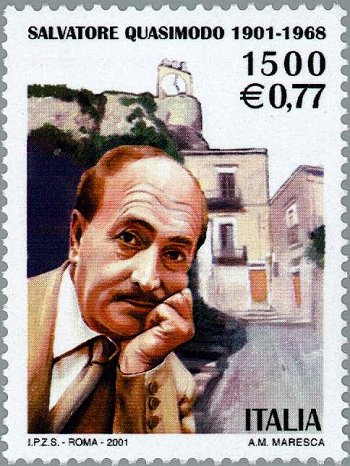
Salvatore Quasimodo
(1901-1968)
Enemy of Death
(For Rossana Sironi)
You should not have
ripped out your image
taken from us, from the world,
a portion of beauty.
What can we do
we enemies of death,
bent to your feet of rose,
your breast of violet?
Not a word, not a scrap
of your last day, a No
to earth’s things, a No
to our dull human record.
The sad moon in summer,
the dragging anchor, took
your dreams, hills, trees,
light, waters, darkness,
not dim thoughts but truths,
severed from the mind
that suddenly decided,
time and all future evil.
Now you are shut
behind heavy doors
enemy of death.
Who cries?
You have blown out beauty
with a breath, torn her,
dealt her the death-wound,
without a tear
for her insensate shadow’s
spreading over us.
Destroyed solitude,
and beauty, failed.
You have signalled
into the dark,
inscribed your name in air,
your No
to everything that crowds here
and beyond the wind.
I know what you were
looking for in your new dress.
I understand the unanswered question.
Neither for you nor us, a reply.
Oh, flowers and moss,
Oh, enemy of death.
Salvatore Quasimodo poetry
kempis.nl poetry magazine
More in: Archive Q-R
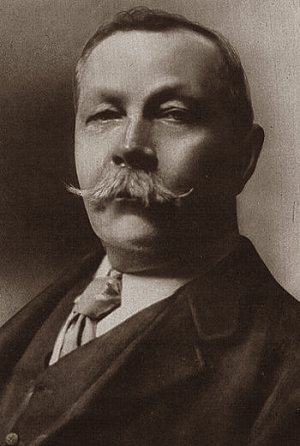
Arthur Conan Doyle
(1859-1930)
Advice to a young author
First begin
Taking in.
Cargo stored,
All aboard,
Think about
Giving out.
Empty ship,
Useless trip!
Never strain
Weary brain,
Hardly fit,
Wait a bit!
After rest
Comes the best.
Sitting still,
Let it fill;
Never press;
Nerve stress
Always shows.
Nature knows.
Critics kind,
Never mind!
Critics flatter,
No matter!
Critics curse,
None the worse.
Critics blame,
All the same!
Do your best.
Hang the rest!
Arthur Conan Doyle poetry
kempis.nl poetry magazine
More in: Archive C-D, Arthur Conan Doyle, Doyle, Arthur Conan
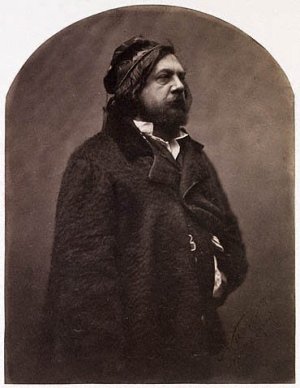
Théophile Gautier
(1811-1872)
Apollonie
J’aime ton nom d’Apollonie,
Echo grec du sacré vallon,
Qui, dans sa robuste harmonie,
Te baptise soeur d’Apollon.
Sur la lyre au plectre d’ivoire,
Ce nom splendide et souverain,
Beau comme l’amour et la gloire,
Prend des résonances d’airain.
Classique, il fait plonger les Elfes
Au fond de leur lac allemand,
Et seule la Pythie à Delphes
Pourrait le porter dignement,
Quand relevant sa robe antique
Elle s’assoit au trépied d’or,
Et dans sa pose fatidique
Attend le dieu qui tarde encor.
Théophile Gautier poetry
kempis.nl poetry magazine
More in: Archive G-H, Gautier, Théophile

foto joodse omroep
Esther Porcelijn in nieuwe serie
‘Zoek de verschillen’ bij de Joodse Omroep
Vanaf de eerste zondag in maart programmeert de Joodse Omroep drie nieuwe delen van de inmiddels populaire serie Zoek de verschillen. Per aflevering vertrekt steeds een andere jongere naar een voor hem of haar onbekende Joodse gemeenschap elders in de wereld. Van tevoren weten de deelnemers niet waar ze zullen belanden: dat horen ze pas op Schiphol. Vervolgens draait de Nederlandse hoofdpersoon een aantal dagen mee in een plaatselijke familie en wordt geconfronteerd met een andere cultuur, andere gebruiken en andere denkbeelden binnen het Jodendom. Dat dit niet altijd even gemakkelijk is, zien we in deze spannende reeks.
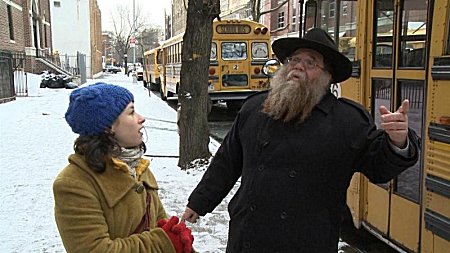
foto joodse omroep
De afgelopen weken zijn de opnamen gemaakt voor de nieuwe reeks met als een van de hoofdpersonen Esther Porcelijn, theatermaakster en stadsdichter van Tilburg. Tijdens een aantal voor haar zeer intensieve dagen was de seculiere Esther te gast bij de Chabad-gemeenschap in Brooklyn, New York. Onder de hoede van rabbijn Chaim Dalfin en zijn gezin, werd de seculiere theatermaakster ondergedompeld in het Amerikaanse orthodoxe leven. Hoe het de Tilburgse daar vergaan is, is te zien in Zoek de verschillen.
Op zondag 3, 10 en 17 maart Nederland 2, 14:15 uur (Esther Porcelijn in New York is te zien in de aflevering van 10 maart)
fleursdumal.nl magazine
More in: Porcelijn, Esther, Porcelijn, Esther
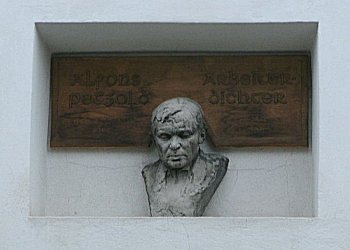
Alfons Petzold
(1882-1923)
Das Mädchen
Sieben Jahre stand ihr Warten
mitten im Stöhnen der Maschinen,
mitten im Staube tanzender Spindeln
mußte sie öligen Rädern dienen.
Sieben Jahre blühte ihr Leib,
rein und köstlich im Sumpfe der Gassen
wußte sie aus der Wüste des Tages
blühende, fröhliche Stunden zu fassen.
Stand sie zur Frühe vor der Fabrik,
sah sie die Straße hinauf und hinunter,
ob nicht durch die schwatzende Menge
käme der Liebe grüßendes Wunder.
Wenn sie abends nach Hause ging,
war’s ihr, als müsse ein Tor aufspringen
und ein Jüngling sie jubelnd umfangen,
heimwärts tragen mit Jauchzen und Singen.
Sieben Jahre stand sie so
mitten im Lärm und Qualm der Maschinen,
ging sie durch die Gassen und Straßen,
um der seligsten Hoffnung zu dienen.
Bis eines Tages ein sausendes Rad
sich seines armen Mädchens erbarmte
und mit seinen stählernen Händen
Zärtlich den süßen Körper umarmte.
Einmal lag noch lächelnd ihr Blick
auf dem Schwungrad, dann wurde er trüber
und es flüsterten ihre Lippen
in den wunschlosen Tod hinüber:
Geliebter!
Alfons Petzold poetry
Aus der Sammlung Der Dornbusch
fleursdumal.nl magazine
More in: Archive O-P, Petzold, Alfons

Hongerlief
Het is gemaakt van geloof
en liefde het geloof dat de
morgen niet zo slecht is of
de middag brengt geluk in
het land van de zeemeermin
een klein hofje van genot
met in ons hand de kalashnikov
van een gelukkige jeugd
sluiten we het bureau voor
cratie achter ons nemen
een morele vakantie naar
Koog aan de Zaan omdat
we een ding weten wij zijn
gemaakt van geloof en niet
van grenzen zo voeden wij
de liefde die schoonheid
dichterbij laat komen voelen
hoe die liefde honger
die honger liefde en dat
als de honger gestild
het lief nog steeds is.
Martin Beversluis
kempis.nl poetry magazine
More in: Archive A-B, Beversluis, Martin
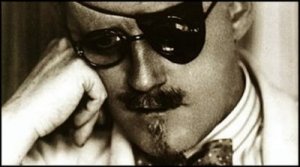
James Joyce
(1882-1941)
A Mother
Mr Holohan, assistant secretary of the Eire Abu Society, had been walking up and down Dublin for nearly a month, with his hands and pockets full of dirty pieces of paper, arranging about the series of concerts. He had a game leg and for this his friends called him Hoppy Holohan. He walked up and down constantly, stood by the hour at street corners arguing the point and made notes; but in the end it was Mrs. Kearney who arranged everything.
Miss Devlin had become Mrs. Kearney out of spite. She had been educated in a high-class convent, where she had learned French and music. As she was naturally pale and unbending in manner she made few friends at school. When she came to the age of marriage she was sent out to many houses, where her playing and ivory manners were much admired. She sat amid the chilly circle of her accomplishments, waiting for some suitor to brave it and offer her a brilliant life. But the young men whom she met were ordinary and she gave them no encouragement, trying to console her romantic desires by eating a great deal of Turkish Delight in secret. However, when she drew near the limit and her friends began to loosen their tongues about her, she silenced them by marrying Mr. Kearney, who was a bootmaker on Ormond Quay.
He was much older than she. His conversation, which was serious, took place at intervals in his great brown beard. After the first year of married life, Mrs. Kearney perceived that such a man would wear better than a romantic person, but she never put her own romantic ideas away. He was sober, thrifty and pious; he went to the altar every first Friday, sometimes with her, oftener by himself. But she never weakened in her religion and was a good wife to him. At some party in a strange house when she lifted her eyebrow ever so slightly he stood up to take his leave and, when his cough troubled him, she put the eider-down quilt over his feet and made a strong rum punch. For his part, he was a model father. By paying a small sum every week into a society, he ensured for both his daughters a dowry of one hundred pounds each when they came to the age of twenty-four. He sent the older daughter, Kathleen, to a good convent, where she learned French and music, and afterward paid her fees at the Academy. Every year in the month of July Mrs. Kearney found occasion to say to some friend:
“My good man is packing us off to Skerries for a few weeks.”
If it was not Skerries it was Howth or Greystones.
When the Irish Revival began to be appreciable Mrs. Kearney determined to take advantage of her daughter’s name and brought an Irish teacher to the house. Kathleen and her sister sent Irish picture postcards to their friends and these friends sent back other Irish picture postcards. On special Sundays, when Mr. Kearney went with his family to the pro-cathedral, a little crowd of people would assemble after mass at the corner of Cathedral Street. They were all friends of the Kearneys, musical friends or Nationalist friends; and, when they had played every little counter of gossip, they shook hands with one another all together, laughing at the crossing of so many hands, and said good-bye to one another in Irish. Soon the name of Miss Kathleen Kearney began to be heard often on people’s lips. People said that she was very clever at music and a very nice girl and, moreover, that she was a believer in the language movement. Mrs. Kearney was well content at this. Therefore she was not surprised when one day Mr. Holohan came to her and proposed that her daughter should be the accompanist at a series of four grand concerts which his Society was going to give in the Antient Concert Rooms. She brought him into the drawing-room, made him sit down and brought out the decanter and the silver biscuit-barrel. She entered heart and soul into the details of the enterprise, advised and dissuaded: and finally a contract was drawn up by which Kathleen was to receive eight guineas for her services as accompanist at the four grand concerts.
As Mr. Holohan was a novice in such delicate matters as the wording of bills and the disposing of items for a programme, Mrs. Kearney helped him. She had tact. She knew what artistes should go into capitals and what artistes should go into small type. She knew that the first tenor would not like to come on after Mr. Meade’s comic turn. To keep the audience continually diverted she slipped the doubtful items in between the old favourites. Mr. Holohan called to see her every day to have her advice on some point. She was invariably friendly and advising, homely, in fact. She pushed the decanter towards him, saying:
“Now, help yourself, Mr. Holohan!”
And while he was helping himself she said:
“Don’t be afraid! Don t be afraid of it! “
Everything went on smoothly. Mrs. Kearney bought some lovely blush-pink charmeuse in Brown Thomas’s to let into the front of Kathleen’s dress. It cost a pretty penny; but there are occasions when a little expense is justifiable. She took a dozen of two-shilling tickets for the final concert and sent them to those friends who could not be trusted to come otherwise. She forgot nothing, and, thanks to her, everything that was to be done was done.
The concerts were to be on Wednesday, Thursday, Friday and Saturday. When Mrs. Kearney arrived with her daughter at the Antient Concert Rooms on Wednesday night she did not like the look of things. A few young men, wearing bright blue badges in their coats, stood idle in the vestibule; none of them wore evening dress. She passed by with her daughter and a quick glance through the open door of the hall showed her the cause of the stewards’ idleness. At first she wondered had she mistaken the hour. No, it was twenty minutes to eight.
In the dressing-room behind the stage she was introduced to the secretary of the Society, Mr. Fitzpatrick. She smiled and shook his hand. He was a little man, with a white, vacant face. She noticed that he wore his soft brown hat carelessly on the side of his head and that his accent was flat. He held a programme in his hand, and, while he was talking to her, he chewed one end of it into a moist pulp. He seemed to bear disappointments lightly. Mr. Holohan came into the dressingroom every few minutes with reports from the box-office. The artistes talked among themselves nervously, glanced from time to time at the mirror and rolled and unrolled their music. When it was nearly half-past eight, the few people in the hall began to express their desire to be entertained. Mr. Fitzpatrick came in, smiled vacantly at the room, and said:
“Well now, ladies and gentlemen. I suppose we’d better open the ball.”
Mrs. Kearney rewarded his very flat final syllable with a quick stare of contempt, and then said to her daughter encouragingly:
“Are you ready, dear?”
When she had an opportunity, she called Mr. Holohan aside and asked him to tell her what it meant. Mr. Holohan did not know what it meant. He said that the committee had made a mistake in arranging for four concerts: four was too many.
“And the artistes!” said Mrs. Kearney. “Of course they are doing their best, but really they are not good.”
Mr. Holohan admitted that the artistes were no good but the committee, he said, had decided to let the first three concerts go as they pleased and reserve all the talent for Saturday night. Mrs. Kearney said nothing, but, as the mediocre items followed one another on the platform and the few people in the hall grew fewer and fewer, she began to regret that she had put herself to any expense for such a concert. There was something she didn’t like in the look of things and Mr. Fitzpatrick’s vacant smile irritated her very much. However, she said nothing and waited to see how it would end. The concert expired shortly before ten, and everyone went home quickly.
The concert on Thursday night was better attended, but Mrs. Kearney saw at once that the house was filled with paper. The audience behaved indecorously, as if the concert were an informal dress rehearsal. Mr. Fitzpatrick seemed to enjoy himself; he was quite unconscious that Mrs. Kearney was taking angry note of his conduct. He stood at the edge of the screen, from time to time jutting out his head and exchanging a laugh with two friends in the corner of the balcony. In the course of the evening, Mrs. Kearney learned that the Friday concert was to be abandoned and that the committee was going to move heaven and earth to secure a bumper house on Saturday night. When she heard this, she sought out Mr. Holohan. She buttonholed him as he was limping out quickly with a glass of lemonade for a young lady and asked him was it true. Yes. it was true.
“But, of course, that doesn’t alter the contract,” she said. “The contract was for four concerts.”
Mr. Holohan seemed to be in a hurry; he advised her to speak to Mr. Fitzpatrick. Mrs. Kearney was now beginning to be alarmed. She called Mr. Fitzpatrick away from his screen and told him that her daughter had signed for four concerts and that, of course, according to the terms of the contract, she should receive the sum originally stipulated for, whether the society gave the four concerts or not. Mr. Fitzpatrick, who did not catch the point at issue very quickly, seemed unable to resolve the difficulty and said that he would bring the matter before the committee. Mrs. Kearney’s anger began to flutter in her cheek and she had all she could do to keep from asking:
“And who is the Cometty pray?”
But she knew that it would not be ladylike to do that: so she was silent.
Little boys were sent out into the principal streets of Dublin early on Friday morning with bundles of handbills. Special puffs appeared in all the evening papers, reminding the music loving public of the treat which was in store for it on the following evening. Mrs. Kearney was somewhat reassured, but be thought well to tell her husband part of her suspicions. He listened carefully and said that perhaps it would be better if he went with her on Saturday night. She agreed. She respected her husband in the same way as she respected the General Post Office, as something large, secure and fixed; and though she knew the small number of his talents she appreciated his abstract value as a male. She was glad that he had suggested coming with her. She thought her plans over.
The night of the grand concert came. Mrs. Kearney, with her husband and daughter, arrived at the Ancient Concert Rooms three-quarters of an hour before the time at which the concert was to begin. By ill luck it was a rainy evening. Mrs. Kearney placed her daughter’s clothes and music in charge of her husband and went all over the building looking for Mr. Holohan or Mr. Fitzpatrick. She could find neither. She asked the stewards was any member of the committee in the hall and, after a great deal of trouble, a steward brought out a little woman named Miss Beirne to whom Mrs. Kearney explained that she wanted to see one of the secretaries. Miss Beirne expected them any minute and asked could she do anything. Mrs. Kearney looked searchingly at the oldish face which was screwed into an expression of trustfulness and enthusiasm and answered:
“No, thank you!”
The little woman hoped they would have a good house. She looked out at the rain until the melancholy of the wet street effaced all the trustfulness and enthusiasm from her twisted features. Then she gave a little sigh and said:
“Ah, well! We did our best, the dear knows.”
Mrs. Kearney had to go back to the dressing-room.
The artistes were arriving. The bass and the second tenor had already come. The bass, Mr. Duggan, was a slender young man with a scattered black moustache. He was the son of a hall porter in an office in the city and, as a boy, he had sung prolonged bass notes in the resounding hall. From this humble state he had raised himself until he had become a first-rate artiste. He had appeared in grand opera. One night, when an operatic artiste had fallen ill, he had undertaken the part of the king in the opera of Maritana at the Queen’s Theatre. He sang his music with great feeling and volume and was warmly welcomed by the gallery; but, unfortunately, he marred the good impression by wiping his nose in his gloved hand once or twice out of thoughtlessness. He was unassuming and spoke little. He said yous so softly that it passed unnoticed and he never drank anything stronger than milk for his voice’s sake. Mr. Bell, the second tenor, was a fair-haired little man who competed every year for prizes at the Feis Ceoil. On his fourth trial he had been awarded a bronze medal. He was extremely nervous and extremely jealous of other tenors and he covered his nervous jealousy with an ebullient friendliness. It was his humour to have people know what an ordeal a concert was to him. Therefore when he saw Mr. Duggan he went over to him and asked:
“Are you in it too? “
“Yes,” said Mr. Duggan.
Mr. Bell laughed at his fellow-sufferer, held out his hand and said:
“Shake!”
Mrs. Kearney passed by these two young men and went to the edge of the screen to view the house. The seats were being filled up rapidly and a pleasant noise circulated in the auditorium. She came back and spoke to her husband privately. Their conversation was evidently about Kathleen for they both glanced at her often as she stood chatting to one of her Nationalist friends, Miss Healy, the contralto. An unknown solitary woman with a pale face walked through the room. The women followed with keen eyes the faded blue dress which was stretched upon a meagre body. Someone said that she was Madam Glynn, the soprano.
“I wonder where did they dig her up,” said Kathleen to Miss Healy. “I’m sure I never heard of her.”
Miss Healy had to smile. Mr. Holohan limped into the dressing-room at that moment and the two young ladies asked him who was the unknown woman. Mr. Holohan said that she was Madam Glynn from London. Madam Glynn took her stand in a corner of the room, holding a roll of music stiffly before her and from time to time changing the direction of her startled gaze. The shadow took her faded dress into shelter but fell revengefully into the little cup behind her collar-bone. The noise of the hall became more audible. The first tenor and the baritone arrived together. They were both well dressed, stout and complacent and they brought a breath of opulence among the company.
Mrs. Kearney brought her daughter over to them, and talked to them amiably. She wanted to be on good terms with them but, while she strove to be polite, her eyes followed Mr. Holohan in his limping and devious courses. As soon as she could she excused herself and went out after him.
“Mr. Holohan, I want to speak to you for a moment,” she said.
They went down to a discreet part of the corridor. Mrs Kearney asked him when was her daughter going to be paid. Mr. Holohan said that Mr. Fitzpatrick had charge of that. Mrs. Kearney said that she didn’t know anything about Mr. Fitzpatrick. Her daughter had signed a contract for eight guineas and she would have to be paid. Mr. Holohan said that it wasn’t his business.
“Why isn’t it your business?” asked Mrs. Kearney. “Didn’t you yourself bring her the contract? Anyway, if it’s not your business it’s my business and I mean to see to it.”
“You’d better speak to Mr. Fitzpatrick,” said Mr. Holohan distantly.
“I don’t know anything about Mr. Fitzpatrick,” repeated Mrs. Kearney. “I have my contract, and I intend to see that it is carried out.”
When she came back to the dressing-room her cheeks were slightly suffused. The room was lively. Two men in outdoor dress had taken possession of the fireplace and were chatting familiarly with Miss Healy and the baritone. They were the Freeman man and Mr. O’Madden Burke. The Freeman man had come in to say that he could not wait for the concert as he had to report the lecture which an American priest was giving in the Mansion House. He said they were to leave the report for him at the Freeman office and he would see that it went in. He was a grey-haired man, with a plausible voice and careful manners. He held an extinguished cigar in his hand and the aroma of cigar smoke floated near him. He had not intended to stay a moment because concerts and artistes bored him considerably but he remained leaning against the mantelpiece. Miss Healy stood in front of him, talking and laughing. He was old enough to suspect one reason for her politeness but young enough in spirit to turn the moment to account. The warmth, fragrance and colour of her body appealed to his senses. He was pleasantly conscious that the bosom which he saw rise and fall slowly beneath him rose and fell at that moment for him, that the laughter and fragrance and wilful glances were his tribute. When he could stay no longer he took leave of her regretfully.
“O’Madden Burke will write the notice,” he explained to Mr. Holohan, “and I’ll see it in.”
“Thank you very much, Mr. Hendrick,” said Mr. Holohan, “you’ll see it in, I know. Now, won’t you have a little something before you go?”
“I don’t mind,” said Mr. Hendrick.
The two men went along some tortuous passages and up a dark staircase and came to a secluded room where one of the stewards was uncorking bottles for a few gentlemen. One of these gentlemen was Mr. O’Madden Burke, who had found out the room by instinct. He was a suave, elderly man who balanced his imposing body, when at rest, upon a large silk umbrella. His magniloquent western name was the moral umbrella upon which he balanced the fine problem of his finances. He was widely respected.
While Mr. Holohan was entertaining the Freeman man Mrs. Kearney was speaking so animatedly to her husband that he had to ask her to lower her voice. The conversation of the others in the dressing-room had become strained. Mr. Bell, the first item, stood ready with his music but the accompanist made no sign. Evidently something was wrong. Mr. Kearney looked straight before him, stroking his beard, while Mrs. Kearney spoke into Kathleen’s ear with subdued emphasis. From the hall came sounds of encouragement, clapping and stamping of feet. The first tenor and the baritone and Miss Healy stood together, waiting tranquilly, but Mr. Bell’s nerves were greatly agitated because he was afraid the audience would think that he had come late.
Mr. Holohan and Mr. O’Madden Burke came into the room In a moment Mr. Holohan perceived the hush. He went over to Mrs. Kearney and spoke with her earnestly. While they were speaking the noise in the hall grew louder. Mr. Holohan became very red and excited. He spoke volubly, but Mrs. Kearney said curtly at intervals:
“She won’t go on. She must get her eight guineas.”
Mr. Holohan pointed desperately towards the hall where the audience was clapping and stamping. He appealed to Mr Kearney and to Kathleen. But Mr. Kearney continued to stroke his beard and Kathleen looked down, moving the point of her new shoe: it was not her fault. Mrs. Kearney repeated:
“She won’t go on without her money.”
After a swift struggle of tongues Mr. Holohan hobbled out in haste. The room was silent. When the strain of the silence had become somewhat painful Miss Healy said to the baritone:
“Have you seen Mrs. Pat Campbell this week?”
The baritone had not seen her but he had been told that she was very fine. The conversation went no further. The first tenor bent his head and began to count the links of the gold chain which was extended across his waist, smiling and humming random notes to observe the effect on the frontal sinus. From time to time everyone glanced at Mrs. Kearney.
The noise in the auditorium had risen to a clamour when Mr. Fitzpatrick burst into the room, followed by Mr. Holohan who was panting. The clapping and stamping in the hall were punctuated by whistling. Mr. Fitzpatrick held a few banknotes in his hand. He counted out four into Mrs. Kearney’s hand and said she would get the other half at the interval. Mrs. Kearney said:
“This is four shillings short.”
But Kathleen gathered in her skirt and said: “Now. Mr. Bell,” to the first item, who was shaking like an aspen. The singer and the accompanist went out together. The noise in hall died away. There was a pause of a few seconds: and then the piano was heard.
The first part of the concert was very successful except for Madam Glynn’s item. The poor lady sang Killarney in a bodiless gasping voice, with all the old-fashioned mannerisms of intonation and pronunciation which she believed lent elegance to her singing. She looked as if she had been resurrected from an old stage-wardrobe and the cheaper parts of the hall made fun of her high wailing notes. The first tenor and the contralto, however, brought down the house. Kathleen played a selection of Irish airs which was generously applauded. The first part closed with a stirring patriotic recitation delivered by a young lady who arranged amateur theatricals. It was deservedly applauded; and, when it was ended, the men went out for the interval, content.
All this time the dressing-room was a hive of excitement. In one corner were Mr. Holohan, Mr. Fitzpatrick, Miss Beirne, two of the stewards, the baritone, the bass, and Mr. O’Madden Burke. Mr. O’Madden Burke said it was the most scandalous exhibition he had ever witnessed. Miss Kathleen Kearney’s musical career was ended in Dublin after that, he said. The baritone was asked what did he think of Mrs. Kearney’s conduct. He did not like to say anything. He had been paid his money and wished to be at peace with men. However, he said that Mrs. Kearney might have taken the artistes into consideration. The stewards and the secretaries debated hotly as to what should be done when the interval came.
“I agree with Miss Beirne,” said Mr. O’Madden Burke. “Pay her nothing.”
In another corner of the room were Mrs. Kearney and he: husband, Mr. Bell, Miss Healy and the young lady who had to recite the patriotic piece. Mrs. Kearney said that the Committee had treated her scandalously. She had spared neither trouble nor expense and this was how she was repaid.
They thought they had only a girl to deal with and that therefore, they could ride roughshod over her. But she would show them their mistake. They wouldn’t have dared to have treated her like that if she had been a man. But she would see that her daughter got her rights: she wouldn’t be fooled. If they didn’t pay her to the last farthing she would make Dublin ring. Of course she was sorry for the sake of the artistes. But what else could she do? She appealed to the second tenor who said he thought she had not been well treated. Then she appealed to Miss Healy. Miss Healy wanted to join the other group but she did not like to do so because she was a great friend of Kathleen’s and the Kearneys had often invited her to their house.
As soon as the first part was ended Mr. Fitzpatrick and Mr. Holohan went over to Mrs. Kearney and told her that the other four guineas would be paid after the committee meeting on the following Tuesday and that, in case her daughter did not play for the second part, the committee would consider the contract broken and would pay nothing.
“I haven’t seen any committee,” said Mrs. Kearney angrily. “My daughter has her contract. She will get four pounds eight into her hand or a foot she won’t put on that platform.”
“I’m surprised at you, Mrs. Kearney,” said Mr. Holohan. “I never thought you would treat us this way.”
“And what way did you treat me?” asked Mrs. Kearney.
Her face was inundated with an angry colour and she looked as if she would attack someone with her hands.
“I’m asking for my rights.” she said.
You might have some sense of decency,” said Mr. Holohan.
“Might I, indeed? . . . And when I ask when my daughter is going to be paid I can’t get a civil answer.”
She tossed her head and assumed a haughty voice:
“You must speak to the secretary. It’s not my business. I’m a great fellow fol-the-diddle-I-do.”
“I thought you were a lady,” said Mr. Holohan, walking away from her abruptly.
After that Mrs. Kearney’s conduct was condemned on all hands: everyone approved of what the committee had done. She stood at the door, haggard with rage, arguing with her husband and daughter, gesticulating with them. She waited until it was time for the second part to begin in the hope that the secretaries would approach her. But Miss Healy had kindly consented to play one or two accompaniments. Mrs. Kearney had to stand aside to allow the baritone and his accompanist to pass up to the platform. She stood still for an instant like an angry stone image and, when the first notes of the song struck her ear, she caught up her daughter’s cloak and said to her husband:
“Get a cab!”
He went out at once. Mrs. Kearney wrapped the cloak round her daughter and followed him. As she passed through the doorway she stopped and glared into Mr. Holohan’s face.
“I’m not done with you yet,” she said.
“But I’m done with you,” said Mr. Holohan.
Kathleen followed her mother meekly. Mr. Holohan began to pace up and down the room, in order to cool himself for he his skin on fire.
“That’s a nice lady!” he said. “O, she’s a nice lady!”
“You did the proper thing, Holohan,” said Mr. O’Madden Burke, poised upon his umbrella in approval.
James Joyce: A Mother
kempis.nl poetry magazine
More in: Archive I-J, Joyce, James, Joyce, James
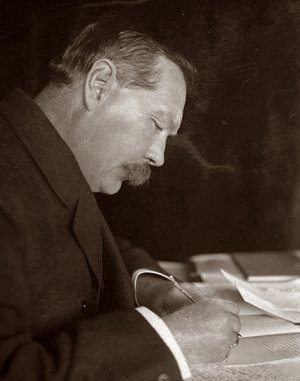
Arthur Conan Doyle
(1859-1930)
Religio Medici
1
God’s own best will bide the test,
And God’s own worst will fall;
But, best or worst or last or first,
He ordereth it all.
2
For all is good, if understood,
(Ah, could we understand!)
And right and ill are tools of skill
Held in His either hand.
3
The harlot and the anchorite,
The martyr and the rake,
Deftly He fashions each aright,
Its vital part to take.
4
Wisdom He makes to form the fruit
Where the high blossoms be;
And Lust to kill the weaker shoot,
And Drink to trim the tree.
5
And Holiness that so the bole
Be solid at the core;
And Plague and Fever, that the whole
Be changing evermore.
6
He strews the microbes in the lung,
The blood-clot in the brain;
With test and test He picks the best,
Then tests them once again.
7
He tests the body and the mind,
He rings them o’er and o’er;
And if they crack, He throws them back,
And fashions them once more.
8
He chokes the infant throat with slime,
He sets the ferment free;
He builds the tiny tube of lime
That blocks the artery.
9
He lets the youthful dreamer store
Great projects in his brain,
Until He drops the fungus spore
That smears them out again.
10
He stores the milk that feeds the babe,
He dulls the tortured nerve;
He gives a hundred joys of sense
Where few or none might serve.
11
And still He trains the branch of good
Where the high blossoms be,
And wieldeth still the shears of ill
To prune and prime His tree.
Arthur Conan Doyle poetry
kempis.nl poetry magazine
More in: Archive C-D, Arthur Conan Doyle, Doyle, Arthur Conan
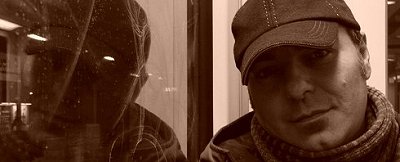
Vincent Berquez
Following the farmer’s dog
The children follow the sheepdog
who follows its master along
the glassy road of chilly children’s
feet and the scar under the icy paw
of the working dog beneath it.
The echoing laughter of children,
the solid animals slowly scratching
the hardened ground of the harsh
winter and tumbling white crystals.
The intimate covering amplifies
the skipping children full of laughter
on the harsh diamonds beneath them,
as the slippery earth trips them up;
and the dog’s scarred paw cuts deep
in the cold and it moves fast to feel less
of the freezing ground beneath
following its master towards the flock.
And afterwards the children will drink
hot drinks and the farmer and his scuttling
dog will eat hot food, and the cattle
will be revived on this Christmas Eve,
this twinkling morning of dusky daylight.
24.12.2010
vincent berquez poetry
kempis.nl poetry magazine
More in: Berquez, Vincent, Vincent Berquez
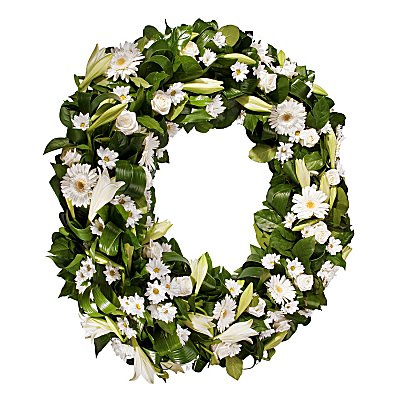
Overleden (Theo) T. A. van der Put
(Eindhoven 1938 – 2013)
Crematie: vrijdag 22 februari om 15.30 uur in de Luxzaal van het crematorium Rijtackers. Anthony Fokkerweg 150, Eindhoven. Samenkomst in de ontvangstkamer van het crematorium waar gelegenheid is tot schriftelijk condoleren.
Mij bereikte het nare bericht dat Theo van der Put is overleden. Theo heeft een ogenschijnlijk beperkte rol gehad in het Eindhovens dichterswereldje. Maar dat is bedrieglijk!
Theo stond altijd klaar om zijn, dikwijls actuele gedichten, voor te dragen. Niet alleen op de diverse podia maar ook als sociaal mens, zoals Theo was, voor incidentele podia rond aandacht behoeftige gebeurtenissen Zoals het voordragen en het toelichten van zijn gedichten voor de verplegingsomroep ERVO ‘Van Poëzie tot poesyalbum’ of voor Sarajevo. Veel dichters kennen hem zittend aan de bar van Café Kraaij en Balder met een pilsje en een sigaar in zijn mond. Altijd goed gestemd, altijd klaar voor een praatje. Bij het tienjarig bestaan van het café schreef hij een ode aan Kees en Hermien. De uitbaters van het voor de Eindhovense dichters indertijd zo belangrijke café. Het werd ‘De Kraaij en Balder blues’ op de muziek van Eric Burdon and the Animals.
Van der Put emigreerde naar Canada op zijn 22e levensjaar. Lang bleef hij niet daar. Als industrieel ontwerper -vrije vormgeving-, was hij geïnteresseerd in de wereld van de kunsten.
Hij hield zijn ‘Ogen en oren open’, om overal ideeën uit te peuren en om bij gelegenheid iets mee te doen: als kunstschilder, bij het schrijven van verhalen, hoorspelen, toneel en gedichten. Poëthement besteedde nog in 2009 in de Centrale Bibliotheek van Eindhoven een geheel podium aan de altijd bescheiden Van der Put en zijn werk. Daar was ondermeer een film te zien, gemaakt naar aanleiding van zijn gedicht ‘Waar ooit Eufraat en Tigris’. Waarschijnlijk het enige gedicht van een Brabantse dichter die aanleiding gaf tot het produceren van een film!
Maar even terug in de geschiedenis. Velen hebben het over de dichter Frans Babylon in relatie met de Poort van Kleef. Van der Put is echter de enige dichter die over de Chat Rouge, in het genoemde café, schreef en eveneens de eerste over de Kunstmarkt van de sociëteit Cultureel Contact. Met name over het gedrag van het publiek. Waar tot op de dag van heden kennelijk nog steeds geen verandering in is waar te nemen. Van der Put nam actief deel aan het programma ‘Multiplex Dansende woorden, roerende talenten’. Over de geschiedenis en wetenswaardigheden rond de dichters van Eindhoven. Samen met collegadichters de ‘Dichtjesroute 2009’ in verband met 65 jaar Vrijheid. Zijn laatste publieke optreden vond plaats in het 2011 in programma ‘Boekenkast I’ over Frans Babylon. Theo was toen al ziek, maar deze gelegenheid kon hij niet voorbij laten gaan. Tot op het laatste moment wilde hij op de hoogte te worden gebracht over wat er te doen was in de Eindhovense dichterswereld.
Zijn laatste bundel ‘Samenwerking’, samen met Kees Salentijn is een juweeltje. Talenten die samenwerken. Dat deed Theo van der Put, samenwerken als het kan.
Pierre Maréchal 17-02-2013
Publicaties onder meer:
Put, Th. A. van der (1992): Grieks Tafereel, Lijn 24/2. Opwenteling Eindhoven.
Put, Th. A. van der (2001): Laatste Regels. Literair Landschap. Eindhoven.
Sebille, W. van & J. Smeets (2001): Luister en Huiver (Jan van Ant). Opwenteling. Eindhoven.
Put, Th.A. van der ((2004): Een eenzijdige vriendschap in drieëndertig gedichten. Opwenteling. Eindhoven.
Put, Th. A. van der & K. Salentijn (2011): Samenwerking. Eindhoven.
Bijdragen onder meer in:
Eindhoven Ontmoet Zijn Dichters, 2002 Opwenteling en samenwerkende dichtersorganisaties. Eindhoven.
Beslagen Ramen K&B Literair 2002, Eindhoven
Eindhoven Dichtstad I, zj. Stichting Raamwerk Letterexploitatie. Eindhoven.
Eindhoven Dichtstad IV, 20006 Uitgeverij MoNo. Eindhoven.
Literaire Magazine’s Eindhoven Dichtstad en CFK.
Verder in flyers van Plankenkoorts, K & B Literair & Poëthement.
Over Theo van der Put:
Adelaar, W. (1996): Een vraaggesprek met Theo van der Put. CFK 2-5. Eindhoven.
Vertrouw ze niet
‘Voorzichtig kind, vertrouw ze niet.
Wees waakzaam meid, vertrouw ze niet.
Blijf alert vrouw, vertrouw ze niet.
Vertrouw ze niet: de mannen.
Ze stichten domeinen en kloosters, godsdienst en oorlog.
Ze lusten in onbenul naar hun strijd om de macht.
Ze verminken je zoon, verkrachten je dochter,
verloochenen hun moeder, doden de vader die het hen leerde.
Vertrouw ze niet vrouw: de leiders, de generaals en de priesters,
wantrouw de profeten, hun mythen en heilige boeken.
Vertrouw je zoons niet toe aan hun vader als die spreekt over eer,
over mannelijkheid en vaderland en glorie op het slagveld.
Verhef je zonen niet, zij zullen geloven dat het hun recht is.
Plaats hen tussen je dochters, in bescheidenheid.
Leer hen over liefde en over kracht, niet over macht.
Leer hen sterk te zijn, maar geen overwinnaars.
Leer hen vrij te zijn, maar niet overheersend.
Leer hen oprecht te zijn, waarlijk mens te zijn.’
Theo. A. van der Put †
fleursdumal.nl magazine
More in: Archive O-P, In Memoriam
![]()
Het lot van de knecht
Op de Col du Grand Cucheron groeide je
door de angst voor de leegte heen, deed je
steeds beter voort, door hoogte aangejaagd.
Ook die ellendige Col du Granier schroeide.
De schuren die jij passeert zie je niet. Toch
zijn ze vol van voedsel, van te melken geiten.
Je drijfveer? Het vuur van die fijne pijn, daar
gaat het je om. Het volste recht heb je. Maar
mocht het te herdoen zijn, dan zou je liever
beter zijn. Je bent echter wat je bent. Meer
valt er straks niet te doen dan je toekomst aan
het verleden te meten. Dat moest je al weten
voor je hieraan begon, jongen. In je dromen
wegduikende kopmannen, en doortraptheid.
Als je morgen vroeg ontwaakt voel je je weer
een adelaar, maar wel met honger. Wie weet
wat de rit naar de zee brengt. Nu is je palmares
nog leeg, als een volière zonder vogels.
Bert Bevers
uit Geelzucht III, De Letterloods, Puyvelde, 2012
kempis.nl poetry magazine
More in: Archive A-B, Bevers, Bert
Thank you for reading Fleurs du Mal - magazine for art & literature